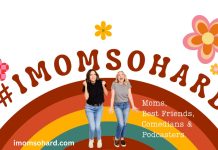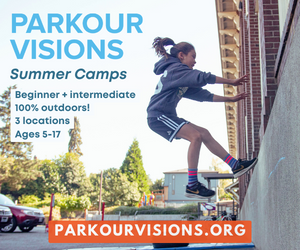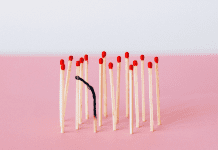The joke’s on us, though, as recent studies have put these results into question. Regardless, breast milk is at least as good as formula and cheaper, anyway. Many moms enjoy breastfeeding their babies. And it’s a lot easier to pop a boob in a fussy baby’s mouth than fumble with assembling a bottle at 3 a.m.
But once you start breastfeeding, when do you stop? I’ve had three kids and eight almost-continuous years of breastfeeding under my belt bra, so I feel slightly qualified to give you an answer. Not one to do anything halfheartedly, I embraced mothering with reckless abandon in 2007 when my oldest was born. And when I say “mothering,” not only do I mean the activity but also the publication-turned-web forum that was hugely active back then. Their focus was on attachment parenting, which is pretty self-descriptive because the kid is pretty much attached to you for the first five years of life. Baby wearing, bed sharing, cloth diapering, homeschooling, and, of course, breastfeeding. This encompassed child lead weaning, extended breastfeeding, as well as the crowning achievement for the paragon of mothers, tandem nursing.
Friends, I did all of these things. Even the last one. It means what you think it does. When my second child was born three years after my first, they had the privilege of starting their sibling rivalry by fighting over my boobs. And ultimately, my oldest nursed until she was four.

I’m going to jump now to present day and let you all know that we are not crazy. My kids are normal kids. I pass for normal on the regular, at least. I live in the suburbs, drive a minivan, and feed my kids popsicles. I’m saying this because I know that extended nursers raise eyebrows in today’s society. It’s not something you see (and from experience that’s because it’s hard to nurse a four-year -old in public, so they’re usually nursed in the privacy of their homes). People don’t usually talk about it, but it is practiced among perfectly sane American mothers, especially here in liberal Portland. It’s also been practiced in other cultures around the globe for probably as long as there have been cultures, and is not harmful to either the mother or child.
There was no cut-off for me, and it never felt “weird” because they were too old. It just was what it had always been. That’s not to say breastfeeding a toddler (or older) doesn’t have it’s odd quirks, but it was normal for us. There were times when extended family members shared how surprised they were that my oldest was still nursing, but ultimately it wasn’t any of their business anyway. So we just did what felt right to us. Eventually, it was easier for me if she weaned. I needed to go out of town for a few days with the baby, and she stayed with her dad. When we reunited I just never offered to nurse her, or redirected her when she asked. Eventually she forgot about it and moved on.
I asked my oldest child today if she remembered having “mama milk,” as our family calls it. She smiled and said, “Yeah.” She laughed while she recounted a memory of her and her younger sibling fighting for space on my lap while they nursed. Her happy facial expressions and demeanor showed that she didn’t feel any embarrassment or other negative feelings about extended nursing, which is pretty awesome when you factor in the fact that she’s usually a broody preteen.



















[…] “Can I have some mama milk, please?“ […]
Comments are closed.